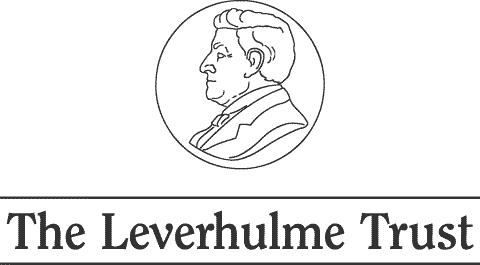To search the RPR site click here
The Rethinking Pitt-Rivers' team obtained a copy of Pitt-Rivers' last will and testament from Her Majesty's Court Service. Pitt-Rivers died on 4 May 1900 and probate was signed by his executors on 17 July of the same year. The will, which was drawn up on 12 June 1892, leaves the bulk of his estate to his eldest son, Alexander, as was traditional. His wife, Alice Pitt-Rivers was left a legacy of £500, one of Pitt-Rivers' carriages (the choice to be hers) and one pair of carriage horses together with an annual income of rent charges. He also left smaller rent charges to his younger sons and bequests of lump sums to all his children. He seems to have treated his youngest son Arthur Algernon slightly differently, which does seem to confirm that he might have had some 'problems' (see biography). The second and subsequent codicils which were written in the year before his death increased the sums of money in his bequests.
The will mentions Penywern Road and Grosvenor Gardens in London, his estates in Dorset, Wiltshire and Hampshire and also a farm in Winnipeg, Canada which he bought for his son Lionel in advance of his part of the settlement.
Surname
Part of his will covers the surname Pitt-Rivers:
... I hereby declare that every person including my said second son ... who under this my Will shall become entitled as tenant for life or as tenant in tail [illegible handwritten insert] or in tail by purchase to the actual possession or the receipt of the rents and profits hereinbefore devised or any part thereof and who shall not then use and bear the surname and arms of Pitt-Rivers shall within the period of one year after he or she shall attain the age of twenty one years and also every person whom any woman so becoming entitled or shall marry whichever of such events shall last happen unless in any of the said respective cases any person shall be prevented by death take upon himself or herself and use in all deeds and writings which he or she shall sign and upon all occasions the surname of "Pitt-Rivers" either together with or in lieu of his own or her own family surname (but so that the name of Pitt-Rivers shall be the principal and sole surname) and quarter the arms of "Pitt-Rivers" with his or her own family arms and shall within the said one year (unless prevented by death) apply for and endeavour to obtain a proper license from the Crown or take such other steps as may be requisite to authorize him or her so as to take [illegible handwritten insert] and bear the said surname and arms of "Pitt-Rivers" ... [the will continues about what will happen if people refuse to take the surname or discontinue its use]
Rushmore and contents
The part of his will which deals specifically with Rushmore states:
... I devise all my real estate not hereinbefore by this my Will or by any codicil hereto otherwise disposed of and other than copyhold and customary hold hereditaments vested in me as a trustee or mortagee unto and to the use of my said son Alexander Edward Lane Fox Pitt his heirs and assigns I bequeath until my said trustees all the plate furniture glass china and artlcles of household use and ornament pictures prints busts statues sculptures bronzes marble vases antiquities books and manuscripts which shall be in or about or belonging to my Mansion House at Rushmore at the time of my decease (except such articles as from their trifling value or perishable nature or for any other reason my trustees or trustee shall consider unsuitable to be kept as heirlooms) ...
The will also states:
And I hereby direct that as soon as conveniently may be after my death an Inventory shall be taken of the said plate furniture and other articles and such Inventory (subject to its being revised as occasion shall require) shall be signed by every person for the time being entitled to the enjoyment of the same plate furniture and other articles under the trust hereinbefore contained (if and when of full age) ...
Most interestingly the main will does not appear to allude to his second collection or his private museum at Farnham, Dorset. It also does not mention specifically the contents of Grosvenor Gardens.
Codicil to the will
The museum at Farnham is mentioned in the first codicil which was drawn up on the 20 November 1899. It states:
1. I bequeath my Museum at Farnham in the county of Dorset together with its contents and the objects of curiosity in my house at Rushmore which are intended to be placed in the said Museum to my eldest son Alexander Edward Lane Fox Pitt and his heirs male.
2. I bequeath my Larmar [sic] grounds in the parishes of Farnham and Tollard Royal in the counties of Wilts and Dorset to my said eldest son ... and his heirs male.
3. I also bequeath unto my said eldest son ... and heirs ... the sum of three hundred pounds per annum the said sum ... is to be for the future maintenance of the said Museum and Larmar [sic] grounds and the artlcles of interest therein and thereon.
4. I direct that the said Museum and Larmar [sic] grounds with the articles of interest therein and thereon shall be kept in a good state of preservation and I further direct that the said sum of three hundred pounds is to be a further charge upon my estates in the Counties of Wilts and Dorset.
5. I appoint my son in law John Lubbock Baronet of 2 St James' Street in the county of Middlesex and of High Elms Farnborough in the county of Kent and Charles Hercules Read of the British Museum [handwritten insert] in the County of Middlesex [end insert] to be the trustees only for the purposes so far as necessary in connection with the future maintenance of the said Museum Larmar [sic] grounds and the objects of interest therein and thereon ...
Report of his will in the press
It is interesting that the will of Pitt-Rivers was recorded in the press (as were others):
An example might be this report in The Morning Post of Friday 20 July 1900 page 2 'Births, Deaths, Marriages and Obituaries':
Wills and Bequests ... Lieutenant-General AUGUSTUS HENRY LANE FOX-PITT-RIVERS, of 4, Grosvenor-gardens and Rushmore, Wilts, who died on May 4, gave his museum at Farnham and certain grounds in Hants, Wilts, and Dorset, and £300 per annum for the keeping up thereof, to his eldest son Alexander Edward; and £500 and a carriage with two horses and harness to his wife Alice Margaret Fox-Pitt-Rivers. The residue of his private estates he left to his eldest son. He devised his estates in Wilts, Dorset, and Hants to his eldest son for life, with remainder to him and other sons, according to seniority in tail making charge with the payment of £2000 per annum to his wife during her widowhood, or of £1000 in the event of her remarriage, and during the life of his wife, of £400 per annum to his son William Augustus; and £400 per annum each to his sons St George William, Lionel Charles and Douglas Henry, and on trust for his son Arthur Algernon. On the decease of Mrs Fox-Pitt-Rivers, portions are to be raised of £8000 for his son William Augustus, £13,300 each for the sons Lionel Charles, Douglas Henry and St George William, £13,300 on trust for his son Arthur Algernon and £3,500 on trust for his daughter Mrs Ursula Katherine Scott, but his said children are to bring into account any sums appointed to them under the marriage settlement of their parents. The value of the estate has been sworn at £414,586 7s 6d with net [illegible] of £110,022 5s 8d by the executor Mr William Charles Scott of Thorpe, near Chertsey.
See also Scott versus Pitt-Rivers [1900-1901] here.
AP, February 2011



